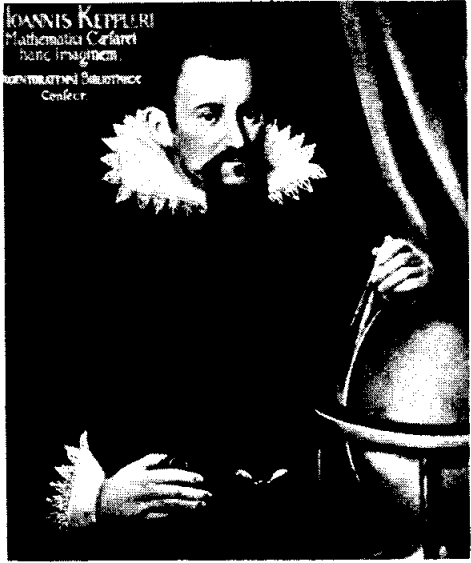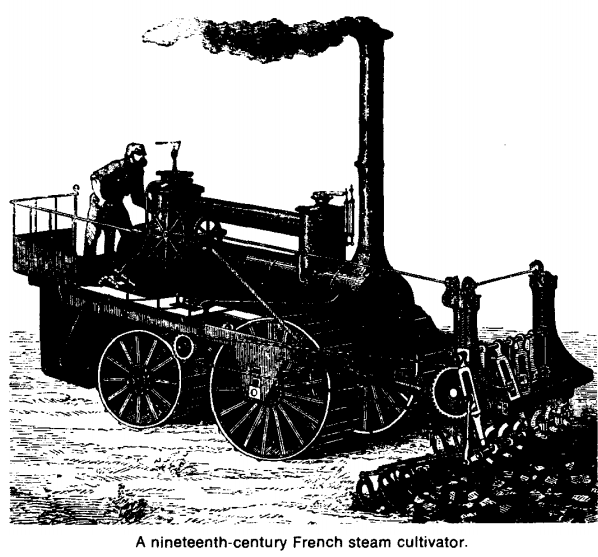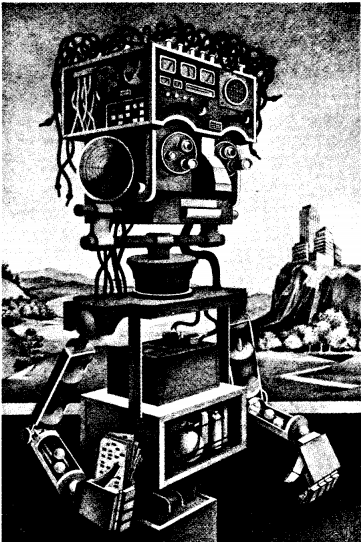This essay is reproduced here as it appeared in the print edition of the original Science for the People magazine. These web-formatted archives are preserved complete with typographical errors and available for reference and educational and activist use. Scanned PDFs of the back issues can be browsed by headline at the website for the 2014 SftP conference held at UMass-Amherst. For more information or to support the project, email sftp.publishing@gmail.com
Computer Course Bibliography
by Al Weinrub
‘Science for the People’ Vol. 4, No. 5, September 1972, p. 32 – 34
Second semester, Al taught a course on computer technology and its social and political implications. The students actually used a computer terminal and worked with it practically as well as theoretically. Here is his bibliography, which may be of help to some readers.
COMPUTER TECHNOLOGY AND ITS SOCIAL AND POLITICAL IMPLICATIONS
Course Bibliography
 1) REQUIRED READING
1) REQUIRED READING
a) Norbert Wiener, The Human Use of Human Beings, (paperback)—a discussion of cybernetics (the science of information and control) and its relevance to many social questions.
b) Kurt Vonnegut, Player Piano, (paperback)—a fascinating and perceptive novel dealing with life in the totally automated society, written in the early fifties in response to the advent of the electronic computer, but perfectly relevent to the 1970’s.
c) Eric and Marie Josephson, eds., Man Alone, (paperback)—a good collection of essays on the various kinds of alienation found in the advanced capitalistic countries, also containing several historical pieces by Marx, etc.
d) John McDermott, Technology, Opiate of the Intellectuals, New York Review of Books, July 31, 1969.
Bill Zimmerman et al., Censored, available from Science for the People.
National Academy of Sciences, Technology, Process of Assessment and Choice, Government Printing Office.
Three articles which discuss the political context of scientific and technological advance. The first two bring out the deficiencies of the liberal analysis in the third.
2) HOW COMPUTERS WORK (in order of increasing technicality)
a) Scientific American, Information (a collection of articles, 1966, paperback)
b) Ronald Benry, Understanding Digital Computers (paperback)
c) Robert Baron and Albert Piccirilli, Digital Logic and Computer Operations
d) Thomas Bartee, Digital Computer Fundamentals
These books generally deal with the theory and machinery of the computer, beginning with binary logic and logical operations and then going on to explain the workings of the arithmetic, memory, and control sections of a computer. Some have an introduction to machine language and programming languages. Programming manuals abound on the market.
3) FILMS AND OTHER MEDIA (a virtually untapped resource1)
a) Metropolis, (Brandeis University Film Service)
This classic silent film made in 1926 by Fritz Lang depicts the great city of the future and the conflict which arises between the ruling and the working classes. A human-form robot is invented to replace workers but a love affair interferes, etc. Contrived resolution. Fits in well with Wiener’s book.
b) The Industrial Worker, (Boston University Film Library)
Brings out the nature of work on the automated assembly line and raises excellent questions about the relationship of automation to working conditions, skilled labor, and job security. These remain unanswered by the fluorish of triumphant music and platitudes at the end.
c) Assembly Line (Boston University Film Library)
Shows the loneliness and dreariness of a young factory worker’s life outside of the plant, and how all life has become depersonalized in the consumer society. Setting is New York City in the fifties.
d) Productivity Key to Plenty (Boston University Film Library)
An excellent statement on the triumph of technology and industry in providing the goods. A propaganda film made in the late forties in response to labor unrest, arguing that automation and machinery are the key to growth and prosperity (and full employment).
e) Modern Times (pirate film)
This Charlie Chaplin classic depicts the frustration and desperation of life during the Depression, and how the people were the innocent victims of a collapsed system of industrial production. Another fine statement of life in advanced capitalist countries. Great symbolism and humor.
f) Right of Privacy (Boston University Film Library)
This film is an NET documentary made a few years ago. It describes the many ways information is gathered about people, from testing to various forms of investigation, and how computers will be used to set up national data banks. Liberal politics but some good informative material.
g) The Automated Battlefield (American Friends Service Committee)
This is an excellent slide show describing the electronic air war which is being waged in Indochina and the reasons for the development of this technology. Brings out the fundamental role of computers.
h) McDonnel-Douglas Film (McDonnel-Douglas Project, 4372 Westminister Place, St. Louis, Mo. 63108 )
A well-done exploration of the way in which this company controls the economy and lives of the people of St. Louis. Brings out the kinds of labor practices and contract support which keep the company prosperous at the expense of the people.
4) ADDITIONAL BIBLIOGRAPHY
a) Material from Computer People for Peace, 291 Sterling Place, Brooklyn, N.Y. 11230—in particular their newsletter, Interrupt, and pamphlets such as Data Banks, Privacy, and Repression.
b) A useful annotated bibliography, Implications of Computer Technology, Research Review No.7, Harvard Program of Technology and Society
c) Books dealing mainly with computer technology and society:
Robert Boguslaw, The New Utopians
Charles Dechert, ed., The Social Impact of Cybernetics
Martin Greenberg, ed., Computers in the World of the Future
James Martin and Adrian Norman, The Computerized Society
Plyshyn, Perspectives on the Computer Revolution
Tavis, The Computer Impact

d) Books dealing with more specific applications of computers
Ashby, Introduction to Cybernetics
Feigenbaum and Feldman, Computers and Thought (on artificial intelligence)
Hamming, Computers and Society (applications)
Oettinger, Run Computer Run (computers in education)
Donald Schon, Technology and Change (business and industrial use)
Edward Tomeski, The Executive Use of Computers
e) Books dealing more generally with technological development:
Raymond Aron, The Industrial Society
Murray Bookchin, Post Scarcity Anarchism
Tom Burns, ed., Industrial Man
Nigel Calder, Technopolis: Social Control of the Uses of Science
Jack D. Douglas, ed., The Technological Threat
Jacques Ellul, The Technological Society
Victor Ferkis, Technological Man
Herbert Marcuse, One Dimensional Man
Lewis Mumford, The Myth of the Machine
Robert Perrucci and Mark Pilisuk, eds., The Triple Revolution Emerging
Albert Teich, ed., Technology and Man’s Future
f) Books dealing with alienation and the new working class:
Robert Blauner, Alienation and Freedom
Andre Gorz, Strategy for Labor
Roszak, The Making of the Counter-Culture
Daniel Singer, Prelude to Revolution
Slater, The Pursuit of Lonliness
g) Assorted articles and pamphlets:
1. Peter Barrer, “Engineers in the Working Class,” Science for the People, Vol. 3, No. 4, September, 1971
2. Herbert Gintis, “The New Working Class and Revolutionary Youth,” Socialist Revolution, May/June, 1970
3. Edward Nell, “Automation and the Abolition of the Market,” MDS Pamphlet, No. 2, c/o Gottlieb, 411 12th Street, New York City
4. Martin Oppenheimer, “White Collar Revisited: The Making of a New Working Class,” Social Policy: July/August 1970
5. Stan Robinson, “Fighting the Police Computer System,” Science for the People, Vol. 3, No.4, September 1971
6. Robert Theobald, “Cybernation and the Fulfillment of Man,” Liberation, March, 1965
7. Robert Theobald, “Cybernation and Human Rights,” Liberation, March 1965
8. Joseph Weizenbaum, “On the Impact of the Computer on Society,” Science, 176, May 12, 1972.

>> Back to Vol. 4, No. 5 <<
- The films listed under the Boston University Film Library are generally available from other university film libraries across the country, e.g., the Indiana University Film Center. They can be ordered in advance from most any of these repositories. Many other relevant titles can also be obtained in addition to those described here.

